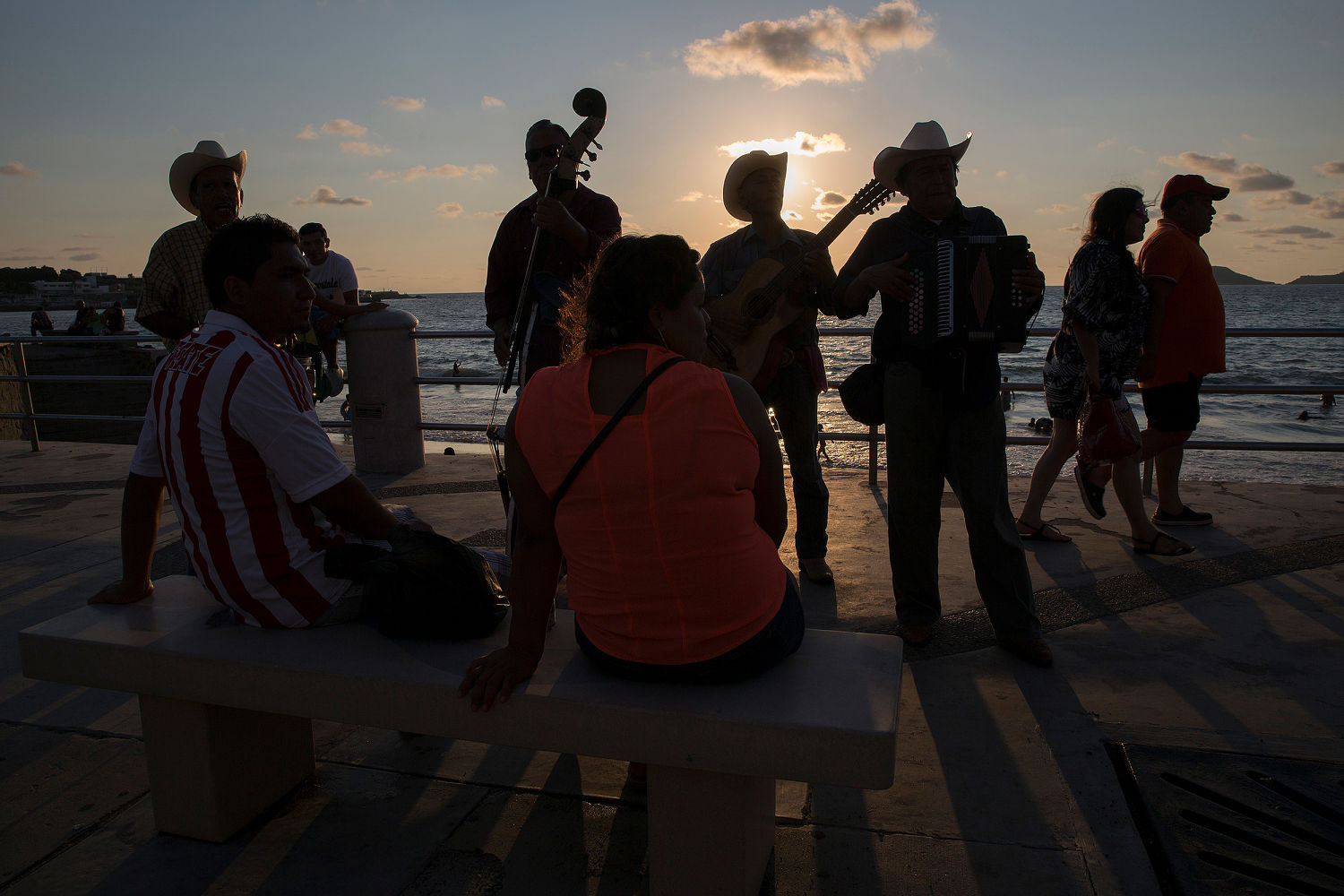As total eclipse nears Mazatlán, banda groups stand their ground amid noise

The beach city of Mazatlán, in the Mexican state of Sinaloa, has long been associated with music — and it is successfully pushing back against noise complaints looking to silence it.
Renowned as “the birthplace of banda,” local bands in Mazatlán graze the beaches with boisterous sounds of tubas, trombones and snare drums. This music is called banda, a subgenre of regional Mexican music whose ensemble features brass and percussion instruments.
Lately the resort city on the Pacific Coast also generated lots of international tourist attention as the first place to watch Monday’s total solar eclipse. Some resort owners, feeling mounting pressure to appease the increased arrival of tourists, claimed the raucous music is hurting business.
In a video posted on social media, Mexican hospitality mogul Ernesto Coppel Kelly stated that, while he enjoys the music, it’s driving away his clientele and suggested policies to limit when and where the music can be played.
“They are a scandal, they are a disaster on the beaches of Mazatlán. They don’t let the people relax,” said Coppel Kelly, founder of Grupo Pueblo Bonito Golf & Spa Resorts. He went on to say that the increasing international tourism to the city is creating a need for regulations so that the bands do not interfere with the tourists’ experience.
A video recently went viral of tourists listening to an acoustic guitar session interrupted by banda music on the beach.
“I have hundreds of American tourists telling me ‘I will not return to Mazatlán,’” he stated in the video, referring to the loud banda music. In response, band members protested outside of Coppel Kelly’s Mazatlán resort Pueblo Bonito.
Although no official laws have been introduced, signs prohibiting the bands from playing on beaches and outside certain hotels were posted outside at least one resort last week. This was enough to drive hundreds of musicians to the streets in a nine-hour protest against the suggested regulations, which aim to prohibit bands from playing after 7 p.m. The protests led to physical altercations with police, local outlets reported.
“If they want to take us out, we need to defend ourselves,” one protester said in a video posted to TikTok. “They do not own Mazatlán … The beach is free to all,” he said.
The proposed regulations also include designating areas for the bands to play, instead of having them wandering the sand. In an interview with local content creators, one band member shared the importance of being able to play music freely on the beaches.
“We depend on the beach. Many families, not just me,” the musician said on TikTok.
Plans to initiate such policies seem to have been dropped by authorities.
President Andrés Manuel López Obrador stood by the bands’ initiative to defend themselves saying in a statement, “This is how they make a living, and besides, this is a long-standing tradition…and for that reason they protested and managed to get it reversed,” he said.
The governor of the state of Sinaloa also commented on the matter on social media, saying, “I do not share the idea of prohibiting the musicians of Mazatlán from carrying out their honest dignified work, that allows them to feed their families.”
The internet reacted with intense backlash to the suggested bans. Many users took to social media to voice their opinions and to remind the public that banda music is an integral part of Mexican culture in that region.
“That’s like going to Vegas and expecting there to be no lights or casinos,” one creator said in a video posted to TikTok.
Another user let foreign tourists know what they can anticipate if they choose to travel to Mazatlán, “Expect to hear banda music. Banda music is a staple of this place, it’s where it’s from,” he said in on TikTok.
“Don’t show up to Mazatlán and try to change the culture,” said a another content creator in a TikTok post.
After facing mounting criticism online, Ernesto Coppel Kelly attempted to manage the fallout. He was seen in a video posted to Instagram with Eduin Caz, lead singer of the famous Banda group Grupo Firme. When the singer asked if he would let the bands play in Mazatlán, Coppel Kelly answered, “Of course I will!”
After all, Sinaloa is the state where this music originated: Banda music dates back to the 1880s when, during the Second Empire of Mexico, European colonists brought over military and brass bands.
Ever since, banda has become a source of livelihood for many locals — and a part of Sinaloa’s DNA.
Read More: As total eclipse nears Mazatlán, banda groups stand their ground amid noise

